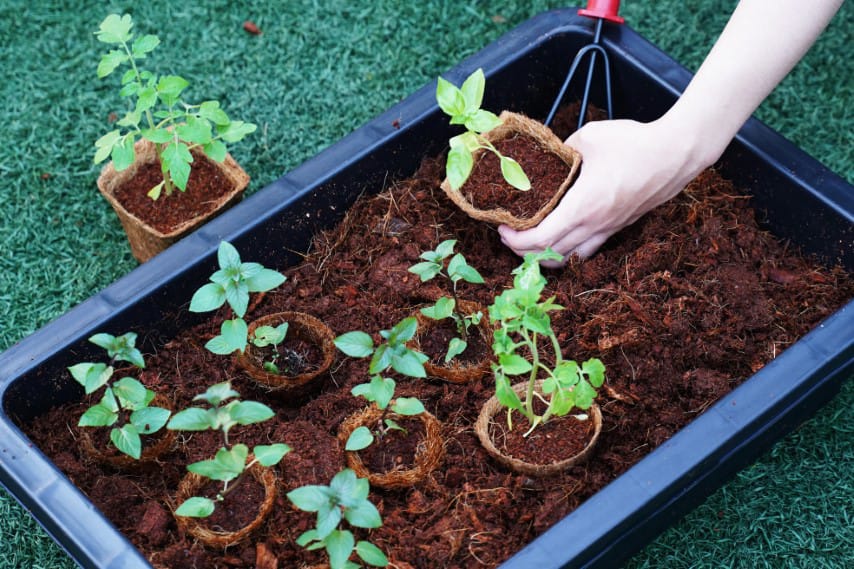We all want to garden responsibly. That’s why we look for sustainable products. The choice of growing medium plays a pivotal role in not just nurturing plants but also in how it impacts our environment. One such eco-friendly option that has been gaining momentum among environmentally conscious gardeners and large-scale agricultural operations is coconut coir. At PlantBest, we understand the importance of sustainability in gardening practices, and that’s why we advocate for the use of coconut coir. Here’s why this remarkable material is not only good for your plants but also beneficial for the planet.
What is Coconut Coir?
Coconut coir is a natural fiber extracted from the husk of coconuts. Traditionally, this by-product of the coconut industry was considered waste, often discarded or burned, which contributed to environmental pollution. However, its rediscovery as a sustainable resource has changed the landscape of gardening substrates.
Environmental Benefits of Using Coconut Coir
- Sustainable and Renewable Resource
- Unlike peat moss, which takes centuries to form, its harvesting causing significant environmental degradation, coconut coir comes from the previously unused bulk of the coconut industry, which makes it highly sustainable. Coconuts are harvested every two to three months, providing a continual supply without the environmental harm associated with other substrates.
- Enhances Soil Health
- Coconut coir improves soil structure by promoting air porosity, enhancing water retention, and facilitating better root growth. This leads to healthier plants that are more resilient to pests and diseases, reducing the need for chemical intervention.
- Reduces Water Usage
- Its high water retention capacity means that using coconut coir for plants significantly reduces the frequency of watering. For regions facing water scarcity, this can contribute to considerable water savings, thus supporting environmental conservation.
- Biodegradable
- Coconut coir is completely biodegradable. When it breaks down, it enriches the soil with organic matter, unlike synthetic grow mediums that can leave harmful “forever residues” in the soil.
- Reduces Dependency on Peat Moss
- The global demand for peat moss not only depletes rare peat bogs but also releases millions of tons of carbon dioxide into the atmosphere each year. By opting for coconut coir, we can drastically reduce our carbon footprint and help in the fight against climate change.
Why Coconut Coir Matters to PlantBest
At PlantBest, our commitment to promoting sustainable gardening practices is at the forefront of our mission. Coconut coir represents more than just an alternative to traditional planting media; it embodies our dedication to environmental stewardship. Here are a few reasons why we champion the use of coconut coir:
- Alignment with Environmental Values: Coconut coir aligns perfectly with our ethos of minimizing environmental impact while enhancing plant health.
- Education and Advocacy: We actively educate our community about the benefits of coconut coir, empowering them to make environmentally responsible choices.
- Innovation in Product Offerings: Our range of coconut coir products is designed to meet various gardening needs, from indoor potted plants to large-scale agricultural applications.
The use of coconut coir for plants is more than a trend; it’s a sustainable practice that benefits your garden and the planet alike. As we continue to face environmental challenges, it becomes increasingly important to adopt practices that contribute positively to the world around us. PlantBest is proud to lead the way in sustainable gardening innovations, ensuring that we not only grow our plants but also our planet’s future.
If you’re looking to make a significant environmental impact in your gardening practices, consider switching to coconut coir, and join us at PlantBest in nurturing a greener, more sustainable world.






